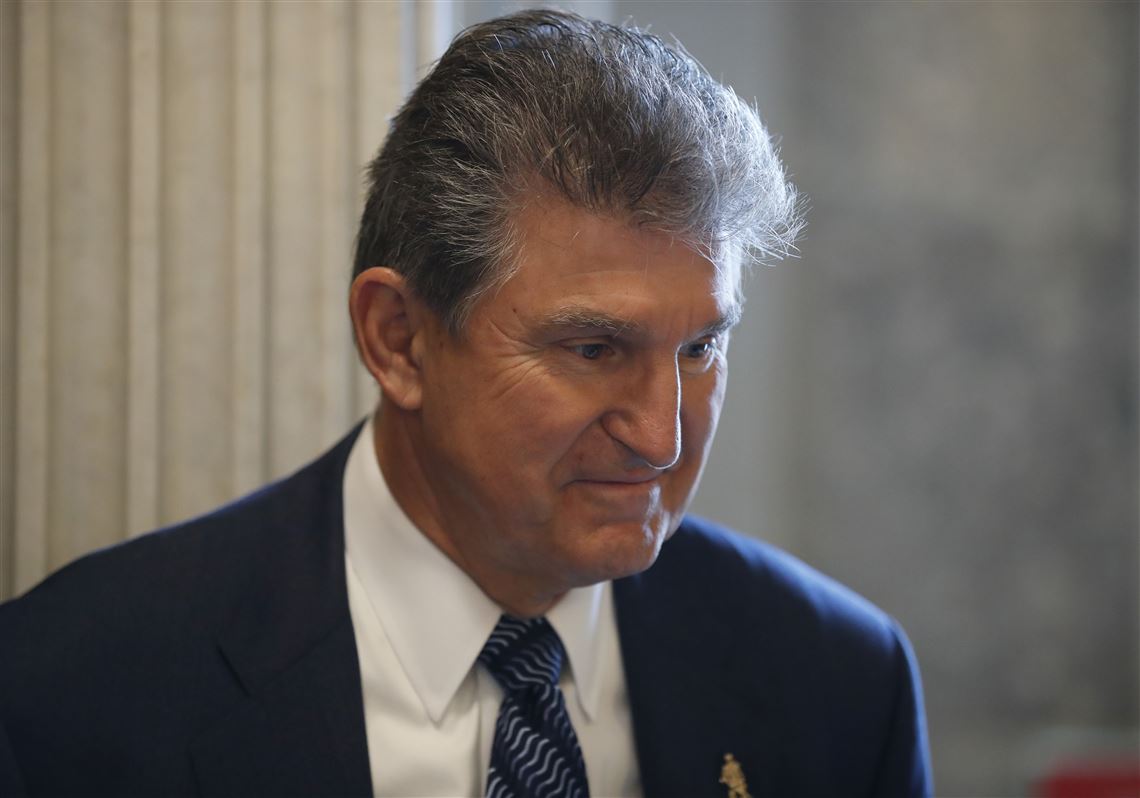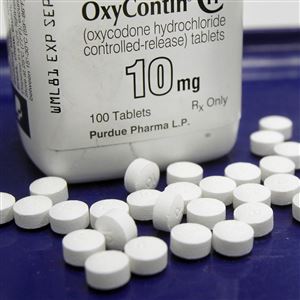Few things are more complicated than health care policy, but if Republicans in Congress succeed in rolling back the expansion of Medicaid, Colleen Hughes says the outcome on people with drug addictions is easy to predict.
“I believe more people would die because they can’t access treatment,” said Ms. Hughes, executive director of the Westmoreland Drug and Alcohol Commission. Westmoreland County had 174 overdose deaths last year, she said, and if federal funding is cut, “there wouldn’t be the money available from the state to make up the difference.”
Democratic Sens. Bob Casey of Pennsylvania and Joe Manchin of West Virginia voiced similar concerns during a Tuesday teleconference, warning about Republican plans to repeal President Barack Obama’s 2009 health care overhaul, which included the Medicaid expansion.
“More people have died from drug overdoses than car crashes, and it’s the opioids that are fueling this crisis,” said Mr. Casey, referring to highly addictive pain-killing drugs. But “in the midst of this terrible crisis, Republicans want to roll back the Medicaid expansion and the [insurance] premium assistance that have been so important.”
Medicaid has long covered health care costs, including substance-abuse treatment, for the poor. Under Obamacare, states were allowed to offer Medicaid to more low-income families. Some 700,000 Pennsylvanians received coverage as a result. Mr. Casey’s office said that included substance-abuse treatment for 175,000 Pennsylvanians.
But Republicans have long decried the 2009 changes, and now control both houses of Congress and the White House. In May, the House of Representatives passed a bill to repeal many provisions of the Affordable Care Act, and reduce Medicaid outlays by more than $800 billion over a decade. Efforts to draft a Senate bill have been led by 13 Republican senators, including Pat Toomey of Pennsylvania. The bill’s prospects for passage remain unclear, but Senate GOP leaders say a vote could come as early as next week.
Mr. Toomey, a fiscal hawk, has long expressed concerns about rising Medicaid costs, which are a key factor in driving federal deficits. But Toomey spokesman Steve Kelly said that while reining in costs, “any Senate health care bill will keep the Medicaid expansion. Senator Toomey has said on multiple occasions that no one will lose their federal Medicaid eligibility, and no one currently covered by Obamacare will have the rug pulled out from under them.”
That statement reflects Senate plans to establish a transition period before Medicaid changes take effect, and the fact that Republicans don’t plan to end the expansion outright, but to reduce federal financial support for it.
The federal government pays all the costs incurred under the Medicaid expansion. By contrast, under the traditional Medicaid plan, the federal government paid only 57 cents of each dollar, with states paying the rest. Republicans want to put the expanded program on the same footing as the established one.
But cash-strapped states have said they can’t afford to pay the difference. “Deep cuts to Medicaid and rolling back Medicaid expansion would mean less people in treatment, more overdoses and more pain for families and communities,” said a Tuesday statement from Gov. Tom Wolf’s office.
Addiction-treatment specialists also sounded fearful, their concerns compounded by the fact that senators have kept their bill under wraps, without any public hearings.
“People are stunned” by the prospect of seeing Medicaid rolled back, said Frederic Baurer, president of the Pennsylvania Society of Addiction Medicine, whose members treat substance-abuse problems.
Without a bill available for public inspection, “we’re shadow boxing a bit. There’s nothing on the table” to respond to,” Dr. Baurer said. But thanks to Medicaid expansion, “anyone working on the front lines has seen people gaining access to treatment.”
Paul Bacharach, the president and CEO of addiction-treatment provider Gateway Rehab, said rolling back Medicaid expansion “will only add to the already challenged criminal justice and acute-care health systems that will bear the brunt” of untreated addicts. Such steps, he said, would show “a regrettable lack of compassion … and a short-sighted legislative strategy.”
Mr. Kelly noted that the federal government had already passed other measures, with Mr. Toomey’s support, to fund drug-abuse treatment. Mr. Toomey, he pledged, “is continuing his work to protect families and communities from … this terrible scourge.”
Chris Potter: cpotter@post-gazette.com or 412-263-2533.
First Published: June 20, 2017, 2:57 p.m.




















